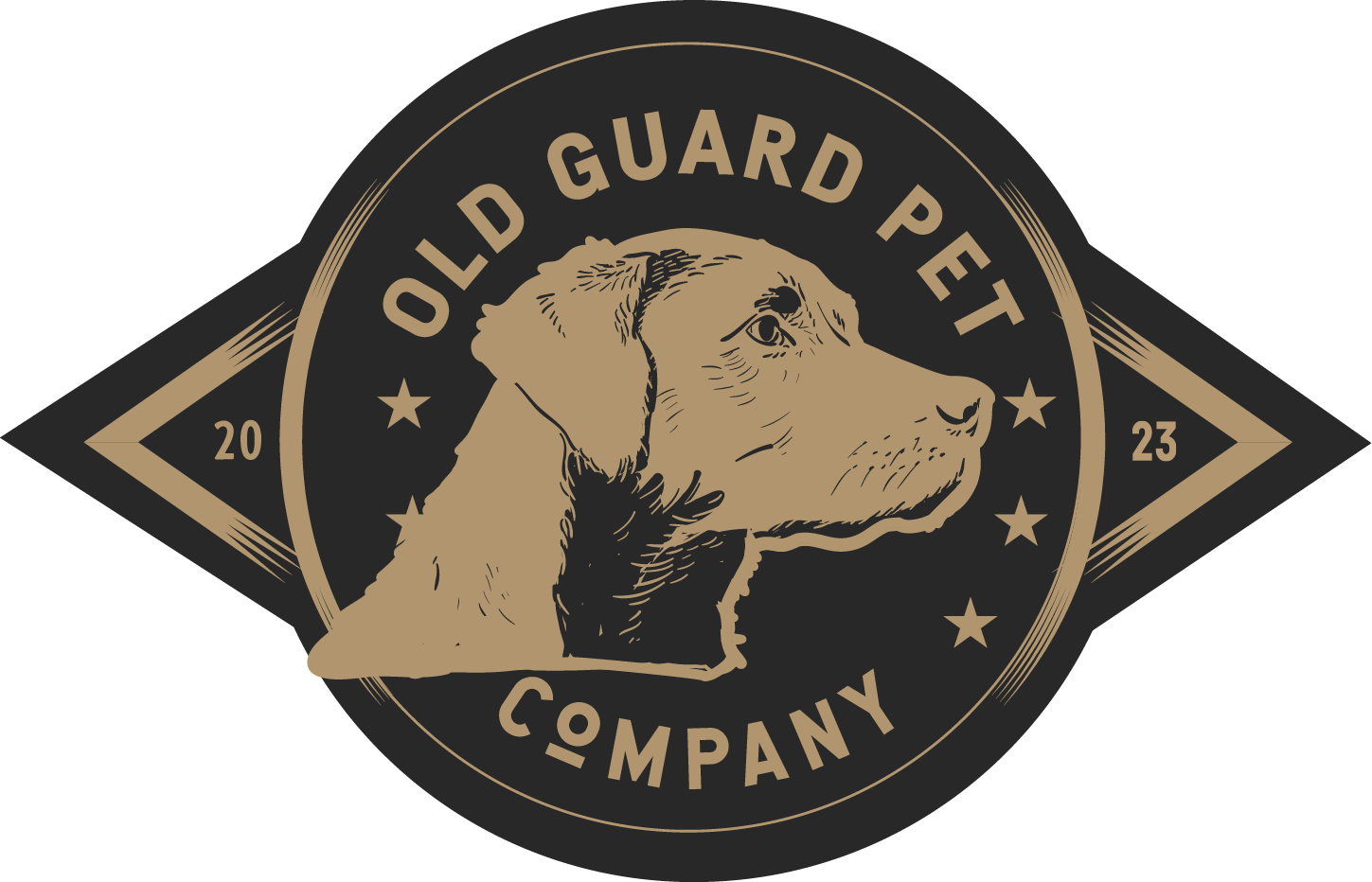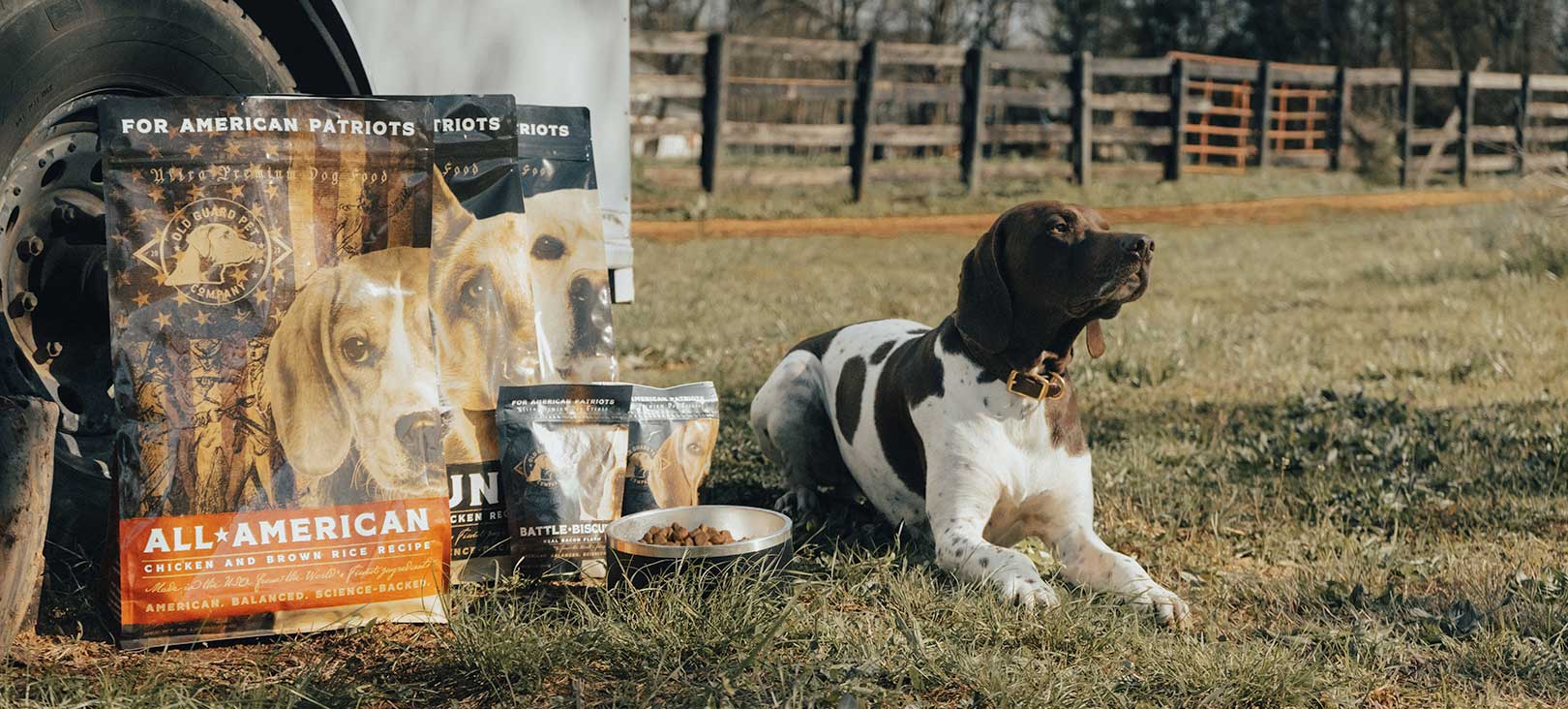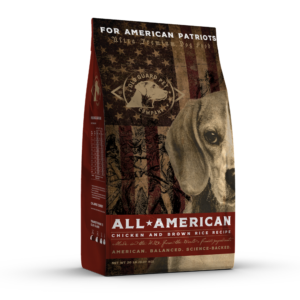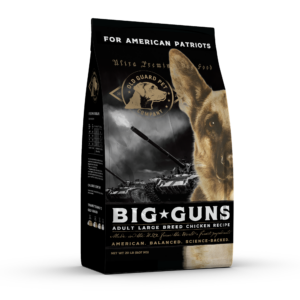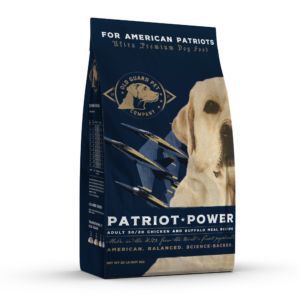The immune system is complex and critical for your dog’s health and well-being. The relationship between diet and the immune system has been well-documented across many species, including dogs. Historically, most research has focused on the correlation between a deficiency of key nutrients like protein, energy, and essential fatty acids and reported negative effects on immune function in dogs. However, the impact of diet on the immune system and defense mechanisms goes well beyond delivering the required type and concentration of vitamins, minerals, and antioxidants.
In this blog, we will provide an overview of the dog’s immune system and how diets can impact immune function. At Old Guard, everything discussed below is critical to how we formulate each of our recipes, ensuring that your dog’s needs are met to support a strong immune system.

How Your Dog’s Immunity Works
Your dog’s immune system is a complex network designed to protect your pet from a range of environmental threats, including bacteria, parasites, and viruses. A strong immune system is important throughout all stages of life, from birth to when your puppy is still developing their immune system through your dog’s senior years when the immune system typically starts to slow down.
The immune system consists of two major systems: the innate and the adaptive. The innate system serves as a first line of defense. It consists of epithelial (skin, mucous, GI tract) barrier function, cytokines, and natural killer cells. This system exists to block the entry of any external threats; however, once this system is overwhelmed, the adaptive immune system kicks in. The adaptive branch is at a lower activity level until called into action and starts to generate a more specific immune response to clear the infection and start to protect the individual. It consists of antibodies, B-cells, and T-cells.
Barrier Function: How Diet Impacts the Two Components of Dog Immunity
Approximately 70–80% of your dog’s immune system is present in the gut and is called gut-associated lymphoid tissue (GALT). GALT, part of the innate immune system, is composed of various immune cells that naturally exist within the intestinal tract. Certain nutritional interventions like fiber sources (e.g., beet pulp) or prebiotics and probiotics can positively influence intestinal immune cell performance (by enhancing function) and composition (T-cell population). This is because there is an intricate relationship between the intestinal microbiota (the good and bad bacteria in the gut), the intestinal epithelial layer, and the local mucosal immune system.
Key Macro and Micronutrients that Support the Dog Immune System: Structure and Function
Specific nutrients are required for the structure and performance of the immune system. Most notable is the role of proteins and specific amino acids alongside omegas.
Protein: Most immune mechanisms are dependent on the production of compounds made from proteins and amino acids. One example is cytokines, which tell immune cells where to go and what to do to keep your dog’s immune system functioning correctly. Protein deficiency can cause a reduction in immune cell counts or antibodies and delay or slow reactions.
Balanced Omega 6:3 Fatty Acids: There is no doubt that omega fatty acids play a role in immune system function. Specifically, omega-6 fatty acids are required to produce essential immune compounds like leukotrienes and prostaglandins but also have many other roles in immune function. Omega-3 fatty acids have been shown to reduce some inflammatory effects and are beneficial for managing chronic immune challenges or inflammatory responses. Together, these fatty acids also support skin barrier function.
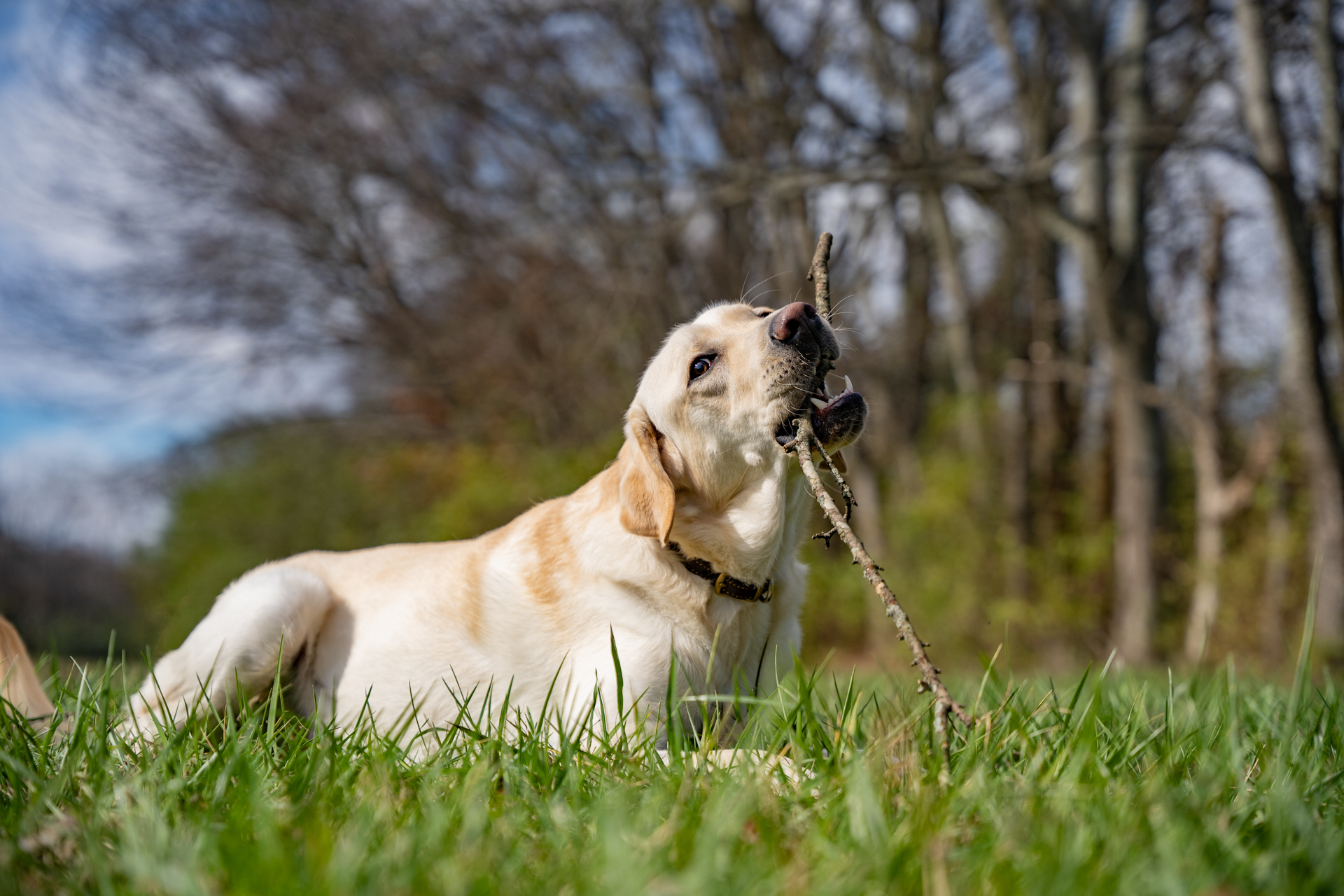 The Role of Antioxidants and the Immune System
The Role of Antioxidants and the Immune System
Antioxidants are important to immune system function due to their ability to scavenge and neutralize the damaging effects of free radicals produced during chemical reactions within the body. Free radicals can negatively interact with other molecules, causing cellular, protein, and DNA damage. Immune cells are particularly vulnerable to damage. Antioxidants can be produced naturally in dogs’ bodies, but premium diets will also help to supplement this natural production through certain ingredients or nutrients.
Vitamin E: The primary role of vitamin E is to act as an antioxidant. Namely, fats present in cells are critical for cellular signaling and are susceptible to damage by free radicals. Vitamin E exhibits a protective mechanism. Further, vitamin E supports membrane stability, regulates membrane fluidity, and optimizes T-cell activation.
Vitamin A: Supports the integrity and function of the barrier defenses against invasion. Vitamin A is also important for immune function by promoting T-cell differentiation and antibody production via adaptive immunity or cell-mediated immunity via T and B-cell production. Additionally, a deficiency of vitamin A reduces the function of neutrophils, macrophages, and natural killer cells.
Vitamin C: Most dogs don’t require supplemental vitamin C in their diets; however, during times of stress or intense exercise, there is likely value. Vitamin C, due to its antioxidant capacity, can help protect against oxidative damage and may support the function of vitamin E.
Zinc: Zinc is required for the healthy functioning of immune systems and for the production and functionality of neutrophils, natural killer cells, macrophages, and T and B cells. Zinc also functions as an antioxidant, suggesting it has a role in the prevention of free radical-induced injury during inflammatory processes.
Selenium: In dogs, selenium deficiency contributed to a decline in the responsiveness of lymphocytes (white blood cells). Selenium, like vitamin E, helps reduce cellular damage caused by free radicals.
Conclusion
Overall, there are many nutrients that contribute to the holistic function of the highly complex immune system in dogs. At Old Guard Pet Company, we ensure our diets are designed to nourish and support all components of the dog’s immune system by providing high-quality animal-based proteins, ideal fiber, pre/probiotic sources, balanced levels of omega-6 and 3 fatty acids, and essential vitamins and minerals. We also ensure adequate levels of vitamin E in each diet to ensure your dog has an effective antioxidant boost.
Five Dog Food Nutrition Secrets From a PhD

With so much information floating around out there on dog nutrition, how can you be sure you have the facts? In this guide, Founder Maggie Gooding, PhD, in Animal Nutrition and Behavior, with over a decade experience in R&D working on some of the largest pet food brands share five nutrition secrets to help your dog live a longer healthier life.
Get the inside scoop on:
- Nutrients
- Energy Balance
- Weight Control
- Dog Eating Habits
- Fibers and Fillers
Download by filling the form out below:
